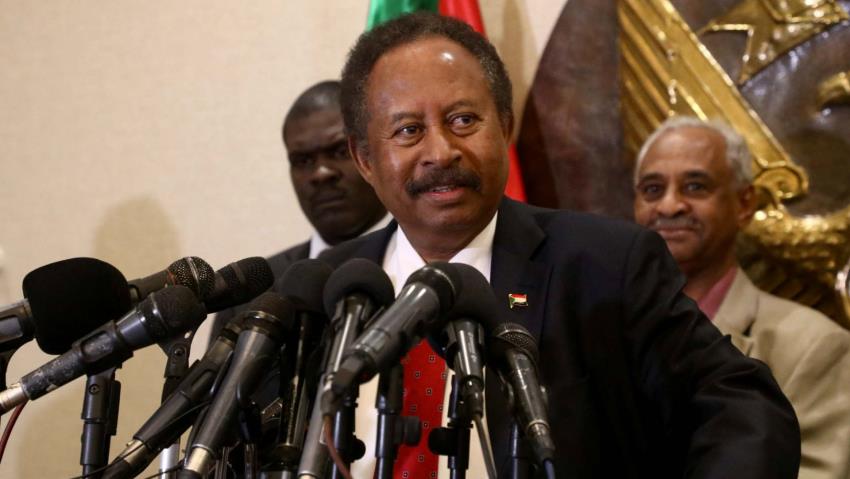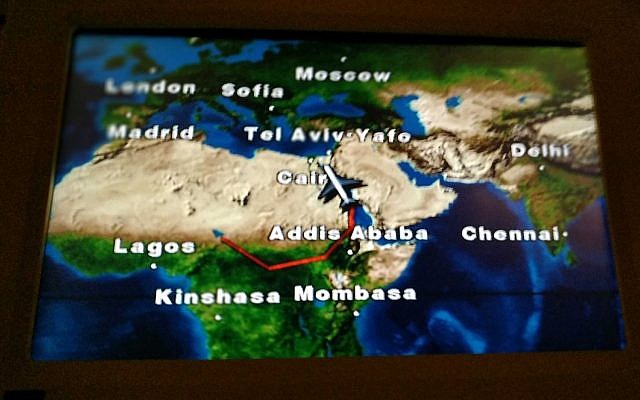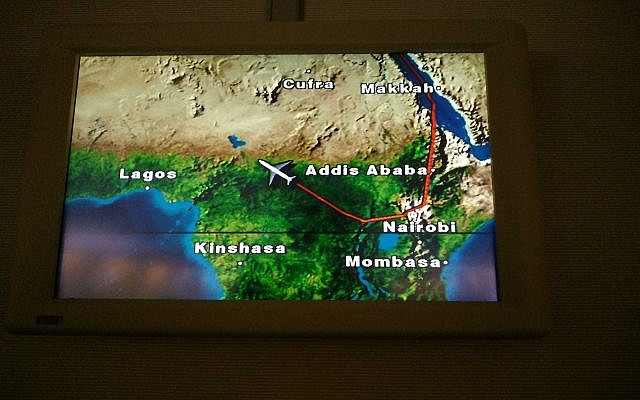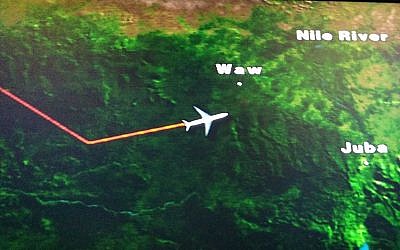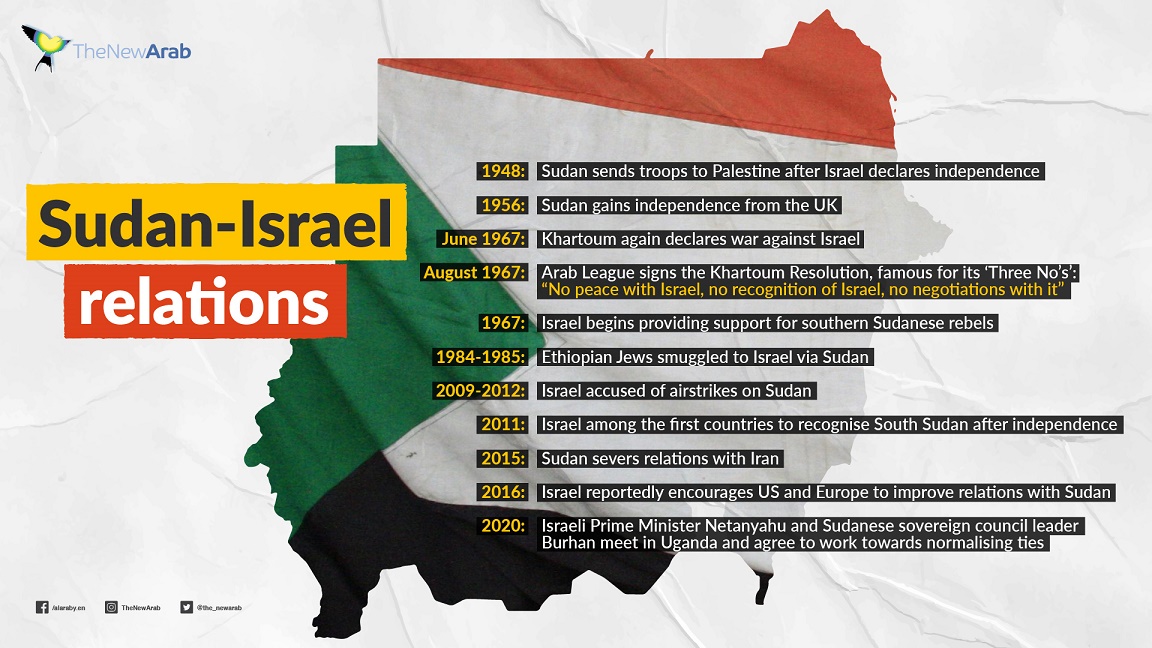Sudan's PM breaks silence and welcomes normalisation with Israel, despite massive uproar
The New Arab, 5 February, 2020
Abdulla Hamdok has defended normalising relations with Israel [Getty]
Sudan's prime minister has broken his silence on Burhan's meeting with Netanyahu and welcomed normalising relations with Israel.
Sudan's Prime Minister Abdalla Hamdok welcomed normalising relations with Israel just days after its UAE-backed military chief inconspicuously met with Netanyahu in Uganda.
"We welcome the press circular of the President of the Transitional Sovereign Council on his meeting with the Israeli Prime Minister," Hamdok said in a statement which he released on Facebook.
"There is no doubt that the road to real change in Sudan is full of challenges and obstacles, yet we must understand that commitment to corporate roles and responsibilities is essential to building a true democratic state," he added.
His statement comes hours after Sudan's military leader General Abdel Fattah al-Burhan released a statement justifying his meeting with Israeli prime minister Benjamin Netanyahu.
"I took this step from the standpoint of my responsibility... to protect the national security of Sudan and achieve the supreme interests of the Sudanese people," Burhan said in a brief statement released after he met the council and top ministers.
On Monday, Netanyahu's office said he had met Burhan in the Ugandan capital Entebbe, in a previously unannounced move.
Israel remains technically at war with Sudan, which supported hardline Islamists including Al-Qaeda during the decades-long reign of autocrat Omar Al-Bashir, ousted amid mass protests last year.
The Palestinian leadership has denounced the meeting as "a stab in the back", just days after the Israeli leader and US President Donald Trump unveiled a controversial peace plan, widely seen as skewed towards Israel.
Rumours of Israeli private jet landing in Sudan adds fuel to normalisation controversy
The New Arab, 27 May, 2020
A meeting between Sudanese and Israeli leaders sparked protests earlier this year [Getty]
Sudan's military has denied rumours of an Israeli jet landing in Khartoum despite controversial moves to normalise ties between the two countries earlier this year.
Reports of an Israeli private jet landing in Khartoum have fuelled anger over moves to normalise ties between Sudan and Israel.
Sudanese army spokesman Brigadier General Amer Mohammad Al-Hassan on Tuesday denied the that an Israeli jet had landed in the capital.
Al-Hassan told The New Arab's Arabic-language sister site that the Khartoum International Airport was shuttered to all traffic apart from humanitarian aid flights and that the only fiight to arrive in the capital on Tuesday - the day the alleged Israeli jet landed - was a Turkish aid shipment.
Rumours of the Israeli jet first emerged on Tuesday after Israeli journalist Simon Aran shared a screenshot from the Flight Radar website, showing the flight path of a Hawker 800XP H25B model jet.
The flight is pictured departing from Tel Aviv in Israel and flying across Egypt to arrive in Khartoum. The New Arab could not verify the authenticity of the image.
Itay Blumental, a reporter for Israel's Ynet, added that the jet's registration number was N84UP - a private jet available to rent from Israel's Private FLITE Charters based out of Tel Aviv Ben Gurion Airport.
In February, an Israeli jet flew over Sudan for the first time. The flight came a week after Hassan said Israel and Sudan had agreed "on principle" for Israeli commerical aircraft to travel across Sudanese airspace en route to South America.Tuesday's alleged flight comes after Israeli Prime Minister Benjamin Netanyahu wished the chief of Sudan's Sovereign Council a happy Eid al-Fitr, the holiday marking the end of the Muslim holy month of Ramadan.
Moves to normalise ties between the two countries - formally at war - prompted protest earlier this year.
Sudan has long been part of a decades-old Arab boycott of Israel over its occupation of Palestinian lands.
In the wake of the 1967 war in which Israel occupied the West Bank and seized the Golan Heights from Syria, Arab leaders held a historic meeting in Khartoum to announce what became known as the 'three nos' - no peace, no recognition, no negotiations with Israel.
That all changed in early February, when Sovereign Council leader Abdel Fattah al-Burhan flew to Uganda to meet with the Israeli premier.
"It has been agreed to start a cooperation that will lead to normalising the ties between the countries," Netanyahu's official said after the meeting.
While Sudanese government officials said Burhan "did not give a promise of normalising or having diplomatic relations" with Israel, the meeting was soon followed by the first Israeli flight across Sudanese airspace.
Instead, the unprecedented meeting was held to "protect the national security" of Sudan, Burhan claimed.
Israel has a key role to play in realising Khartoum's much-desired removal from Washington's State Sponsors of Terrorism blacklist, the military leader said.The United States placed Sudan on the list in the early 1990's over the former regime's hosting of al-Qaeda chief Osama bin Laden.
Sudan was accused of aiding the extremist group and later sued by victims of two major al-Qaeda attacks.
US officials have expressed sympathy over the terror designation which prevents Sudan from access to much international aid, but have stressed that its removal from the list is a legal process that takes time.
Khartoum lets Netanyahu’s plane fly over South Sudan, in first for Israel
Flight back from Chad shortened by an hour as Sudan gives permission for PM’s jet to cross over airspace of southern neighbor, amid reports of diplomatic opening
By Raphael Ahren, diplomatic correspondent
The Times Of Israel, 21 January 2019
The flight path of Benjamin Netanyahu's plane over South Sudan en route from Chad to Israel, as seen on
a screen inside Netanyahu's plane, January 20, 2019. (Raphael Ahren)
ABOVE SOUTH SUDAN — In an unprecedented move, Sudan on Sunday allowed an Israeli plane to cross through the air space it controls.The flight, carrying Prime Minister Benjamin Netanyahu back to Israel from a lightning visit to Chad, jetted over South Sudan, whose skies are under the control of the civil aviation authorities in Khartoum.
The flight came hours after Netanyahu lauded Israeli “inroads” with the Islamic world as he and Chadian President Idriss Deby resumed ties, and amid a reported diplomatic push to reach an understanding with Khartoum to routinely allow Israeli overflights above Sudan to shave hours off flights to western Africa and Latin America.
Israel has friendly relations with South Sudan, but the country’s airspace is controlled by its northern neighbor, which does not have diplomatic ties with the Jewish state.
Sunday’s flight marked the first time an Israeli aircraft was allowed to fly over South Sudan, officials in the prime minister’s entourage said.
South Sudan, which is predominantly Christian, gained independence from Muslim Sudan several years ago, and the two countries are still hostile to each other. However, South Sudan’s civil aviation remains under Khartoum’s control.
South Sudanese government forces ride on a vehicle, January 12, 2014.
(AP/Mackenzie Knowles-Coursin, File)
The Prime Minister’s Office asked reporters who accompanied Netanyahu to and from Chad not to publish the fact that the flight home was being routed over South Sudan before the plane had landed at Tel Aviv’s Ben-Gurion Airport late on Sunday night, presumably for security reasons and to prevent any last-minute efforts from other parties to change the decision by the Sudanese authorities.Shortly after takeoff, the captain announced that this was a “historic flight,” and that thanks to the shortcut the return flight would be about one hour shorter than the trip’s outbound leg.
Earlier on Sunday, the prime minister’s plane took a long detour en route to Chad, flying south over the Red Sea and then across Eritrea, Ethiopia, Kenya, Uganda, the Democratic Republic of the Congo and the Central African Republic before entering Chadian airspace.
The flight path of Benjamin Netanyahu’s plane en route from Israel to Chad, skirting Sudan, as seen on a
screen inside Netanyahu’s plane, January 20, 2019. (Raphael Ahren)
On the return flight, the El Al air craft flew from N’Djamena south to the Central African Republic, but then turned eastward to cross over central South Sudan, from where it continued to Ethiopia and Eritrea to the Red Sea.
The flight path of Benjamin Netanyahu’s plane over South Sudan, en
route from Chad to Israel, as seen on a screen inside Netanyahu’s
plane, January 20, 2019. (Raphael Ahren)
Netanyahu had flown to Chad on Sunday to declare the resumption of diplomatic ties with the Muslim-majority country, together with Déby.It was unclear whether Sudan’s decision to let Netanyahu’s jet fly over South Sudan was connected to Chad’s move to resume ties. In November, Deby said during a visit to Israel that he would be willing to help Israel and Sudan negotiate forging relations with Israel.
Khartoum had said recently it was not changing its policy of forbidding Israeli planes from entering its airspace. Earlier this month, a Sudanese television station reported that Sudanese leader Omar al-Bashir refused an request by a Kenyan airline to use its airspace for a flight to Tel Aviv.
However, Sunday’s unprecedented flight may indicate that Khartoum is willing to show flexibility regarding flyovers of third states under the control of its civil aviation authority.
Netanyahu, who also serves as Israel’s foreign minister, has in recent years pushed to open more flight paths to the Jewish state, including a direct route to India over Saudi Arabia and Oman.
Israeli and South American officials recently agreed to open a direct flight between Santiago and Israel, though the plane would still have to skirt Sudan, adding several hours to the time in the air.
Sudan has in recent years moved away from the geopolitical influence of Iran, which officials in the West have seen as an opportunity for a diplomatic breakthrough.
In the past, Sudan allegedly served as a way-station for the transfer of Iranian weapons to the Hamas terrorist group in Gaza. Israel has reportedly intercepted and destroyed transfers of weapons from Sudan bound for Gaza.
However, since it broke ties with Iran, Sudan is no longer perceived by Israel as a threat, but rather as a potential ally.
On Sunday, Israel added a record 160th country to the list of nations with which it has a diplomatic relationship, signing an agreement to resume bilateral ties with Chad.
Chad, a country of 15 million people, had severed ties in 1972 at the behest of Libyan dictator Muammar Gaddafi.
“We are making inroads into the Islamic world,” Netanyahu declared Sunday at N’Djamena’s presidential palace, minutes before he signed the formal document sealing the resumption of diplomatic relations.
Prime Minister Benjamin Netanyahu (R) and Chadian President Idriss Deby meet at the presidential
palace in N’Djamena, Chad, on January 20, 2019. (Kobi Gideon/GPO)
“We are making history and we are turning Israel into a rising global power.”A few moments later, at a briefing for the traveling press, Netanyahu said that Jerusalem’s increasingly robust ties with the Arab world are helping Israel break the ice with Muslim-majority states in Africa that do not have formal diplomatic relations with Israel.
“This visit first and foremost teaches us about our standing in the Arab world,” Netanyahu said. “Not only that there wasn’t any opposition, but also, I say this unofficially, there was some support.”
He declined to say which countries expressed support for Chad’s decision to establish ties with Israel nearly 50 years after they were severed.
Addendum:
|
Races? Only one Human race United We Stand, Divided We Fall |
 |
No time to waste. Act now! Tomorrow it will be too late |
|


























